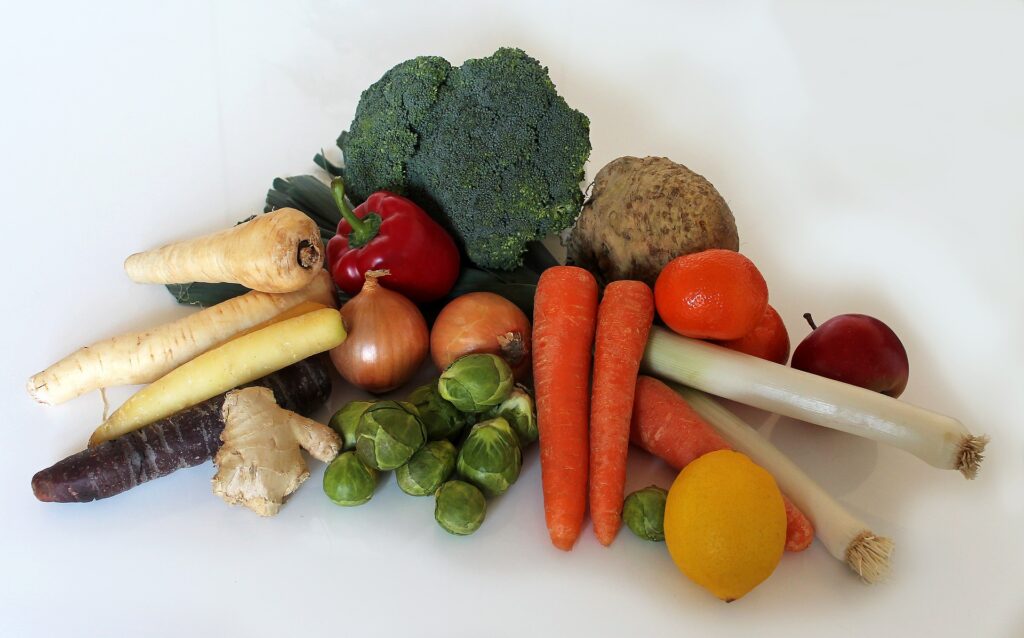In today’s fitness landscape, the vegetarian diet for muscle building has emerged as a viable and effective option. Contrary to common misconceptions, plant-based diets can adequately support muscle growth and development. With strategic planning and attention to nutrient intake, individuals adhering to a vegetarian lifestyle can achieve their desired muscle-building goals.
Building Blocks: Protein-Rich Plant Foods.
Crafting a vegetarian diet tailored for muscle building hinges on the strategic inclusion of protein-rich plant foods. Legumes stand out as a cornerstone, offering a diverse range of options from lentils to chickpeas, providing ample protein for muscle repair and growth. Tofu, derived from soybeans, delivers a versatile protein source suitable for various culinary creations, while tempeh offers a dense, chewy texture packed with muscle-nourishing nutrients.
Seitan, often referred to as “wheat meat,” emerges as a protein powerhouse derived from gluten, making it a hearty addition to vegetarian muscle-building diets. Moreover, integrating a spectrum of whole grains such as quinoa, brown rice, and oats furnishes additional protein alongside essential vitamins and minerals crucial for optimal muscle function and recovery.
In parallel, incorporating an array of nuts, seeds, and dairy alternatives enriches the diet with essential nutrients like calcium, iron, and zinc, fortifying the body’s resilience and facilitating muscle regeneration. By diversifying protein sources and embracing a spectrum of nutrient-rich plant foods, individuals can construct a vegetarian diet conducive to achieving their muscle-building aspirations while fostering overall health and vitality.

Timing Matters: Meal Planning for Muscle Growth.
In the pursuit of maximizing muscle growth within a vegetarian dietary framework, strategic meal timing and distribution emerge as pivotal factors. Adhering to a regimen that involves consuming protein-rich meals or snacks every 3-4 hours ensures a steady and consistent supply of amino acids, essential for fueling muscle protein synthesis throughout the day. This approach not only facilitates the repair and growth of muscle tissues but also helps to stave off catabolism, preserving hard-earned gains.
Moreover, integrating complex carbohydrates alongside protein sources into these regularly spaced meals serves to bolster glycogen replenishment within muscle cells. This replenishment is vital for sustaining energy levels during prolonged and intense workouts, thereby optimizing performance and facilitating more effective muscle-building stimuli. By prioritizing nutrient timing and distribution, individuals can harness the full potential of their vegetarian diet for muscle growth, fostering an environment conducive to achieving their fitness aspirations.

Enhancing Performance: Strategic Supplementation.
Supplementation stands as a valuable adjunct to the Vegetarian Diet for Muscle Building, offering a means to address potential nutrient deficiencies and optimize performance outcomes. Within the realm of plant-based supplementation, plant-based protein powders, including pea, hemp, and rice protein, emerge as popular choices among vegetarians aiming to augment muscle mass and enhance exercise recovery.
In addition to protein supplements, creatine—a naturally occurring compound primarily found in animal products—can be obtained from vegetarian-friendly sources such as synthetic or fermented creatine. Creatine supplementation has been extensively studied and shown to enhance strength, power, and muscle mass gains, making it a valuable addition to a vegetarian muscle-building regimen.
Furthermore, incorporating omega-3 fatty acid supplements derived from algae provides vegetarians with a sustainable and effective means to support overall health and optimize exercise performance. Omega-3 fatty acids offer anti-inflammatory benefits, potentially reducing exercise-induced muscle damage and enhancing recovery.
Paramount to approach supplementation with caution.
However, it’s paramount to approach supplementation with caution and under the guidance of a healthcare professional or registered dietitian. Individualized assessment of supplement needs ensures safety, efficacy, and alignment with specific health and fitness goals.
In conclusion, the Vegetarian Diet for Muscle Building is not only viable but also enhanced through strategic supplementation. By combining a diverse array of protein-rich plant foods, meticulous meal timing, and targeted supplementation, individuals can achieve their muscle-building objectives while thriving on a plant-based lifestyle. Embracing the inherent power of plants not only fosters robust health but also underscores the compatibility of vegetarianism and muscular strength, paving the way for sustainable fitness success.


